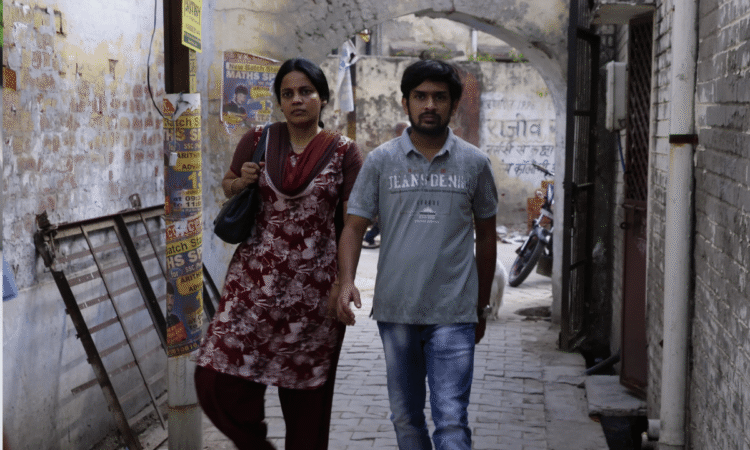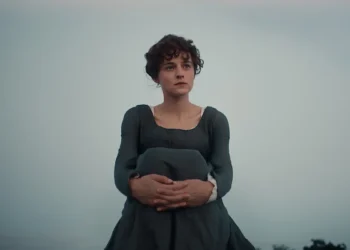With Agra (2025), acclaimed filmmaker Kanu Behl once again proves his mastery in portraying human complexity without compromise. This daring drama blends psychological realism with social commentary, confronting themes many filmmakers shy away from—patriarchy, repression, loneliness, and the absence of emotional education in Indian households. It is raw, unsettling, and unforgettable, making it one of the year’s most important cinematic releases.
Story
At the heart of the film is Guru (played by Mohit Agarwal), a young call-centre employee living in a cramped house with his parents. Trapped by both physical space and emotional suffocation, he battles unresolved childhood trauma, unfulfilled desires, and crippling loneliness.
His reality is a tightrope walk between sanity and delusion, marked by moments of fantasy and self-destructive impulses. Through Guru’s unraveling, Behl exposes larger societal failures—taboo around sexual education, the unspoken cost of emotional neglect, and the entitlement bred by patriarchal systems.
Rather than dismissing Guru as “broken,” the film questions the toxic environment that shapes and damages individuals like him.
Performances
Mohit Agarwal as Guru brings raw vulnerability to the character with a breakthrough portrayal, capturing his fragility, inner chaos, and painful lack of emotional outlet with startling authenticity. Rahul Roy as Daddy Ji embodies an emotionally detached patriarch, whose quiet cruelty becomes a defining force in Guru’s psychological collapse. Vibha Chibber as Mummy Ji gives a nuanced performance as a mother torn between dependence, fear, and a deep desire to protect her son. Her realism enriches the film’s emotional layers. Priyanka Bose as Priti is bold and magnetic. She delivers several of the film’s most gripping moments and her portrayal is unflinching and emotionally complex.
Supporting actors Ruhani Sharma, Sonal Jha, Aanchal Goswami, Rajesh Aggarwal, and Devas Dixit contribute with sincerity, ensuring every character feels authentic and essential to the narrative.
Behind the Scenes
Co-written by Kanu Behl and Atika Chohan, the screenplay refuses to sensationalize, instead offering sharp, layered storytelling.
Visually, Agra is claustrophobic yet poetic—dim lighting, confined spaces, and symbolic mirrors intensify the feeling of entrapment. The soundscape subtly enhances Guru’s mental decline, while the score sustains tension without overpowering the drama.
Behl’s direction is unapologetic, intentionally making the audience uncomfortable. It’s a deliberate choice—mirroring the discomfort society feels when confronted with truths about patriarchy, consent, and emotional literacy.
Final Verdict
Agra is not designed as easy entertainment. Its intensity and themes will challenge viewers, yet this is precisely its strength. It’s a film that holds up a mirror to society, dissecting how systemic failures breed personal tragedies.
For audiences who value cinema as a tool for reflection and change, Agra is essential viewing—a haunting, fearless exploration of human vulnerability that lingers long after the credits roll.
Rating: ★★★★☆ (4/5) – A bold, socially resonant psychological drama that demands attention.























